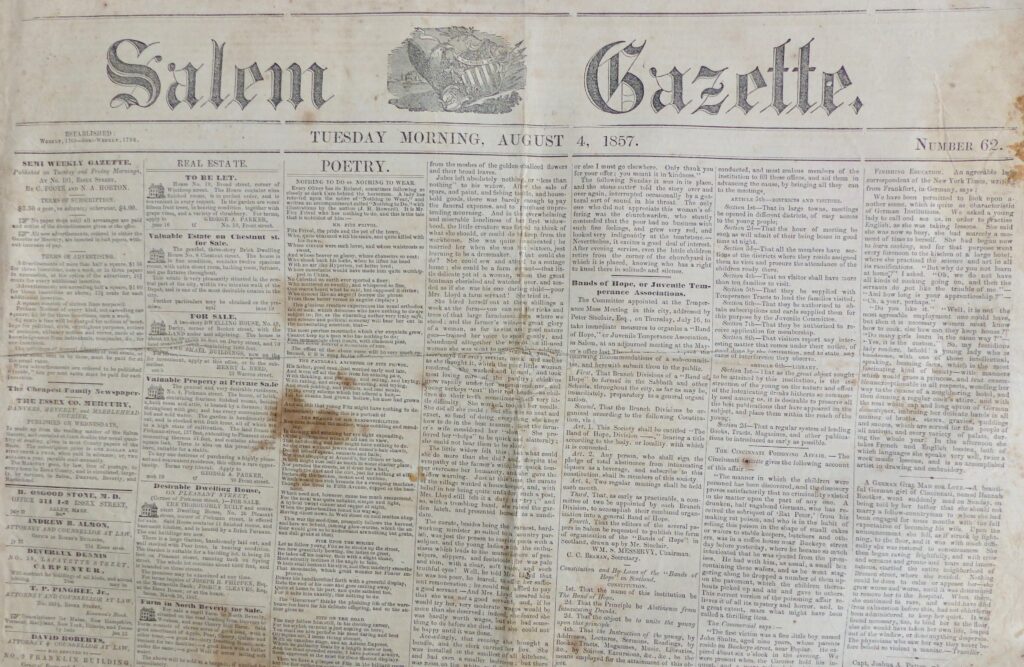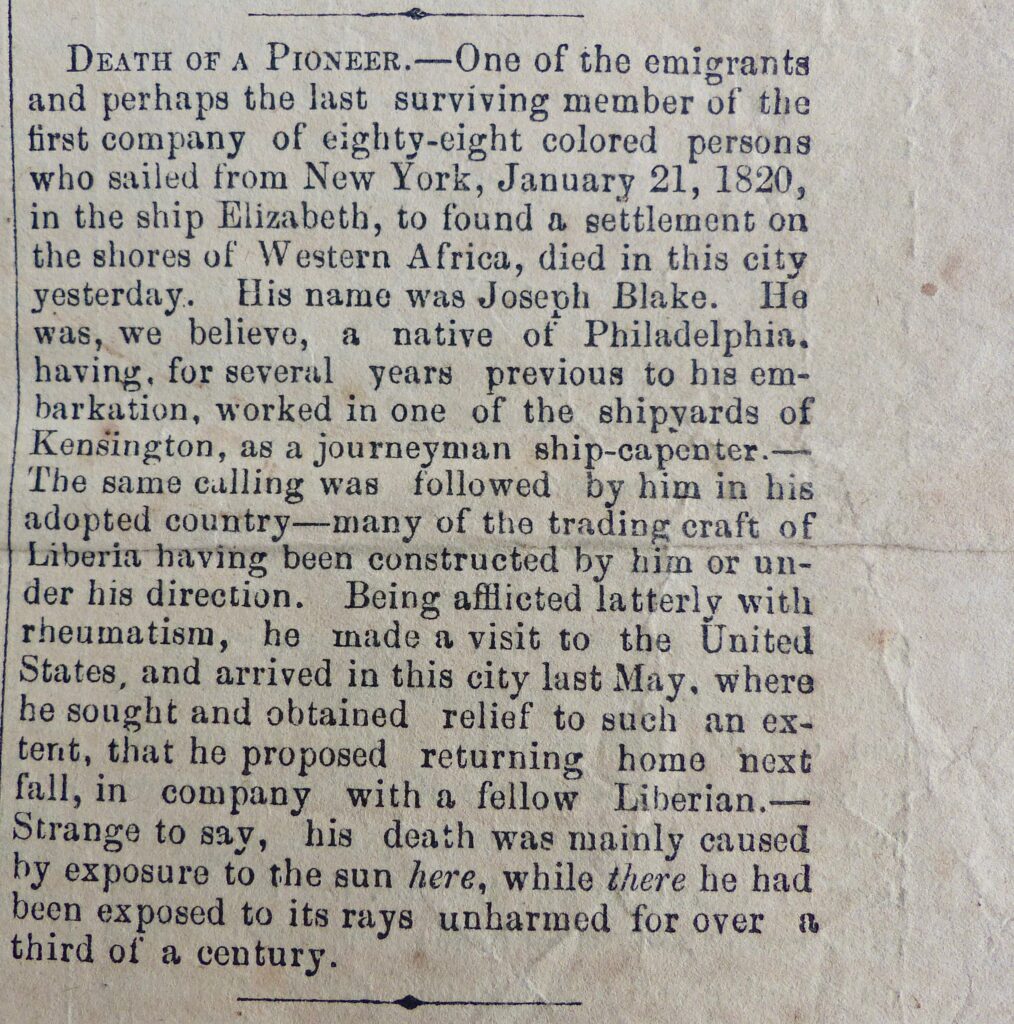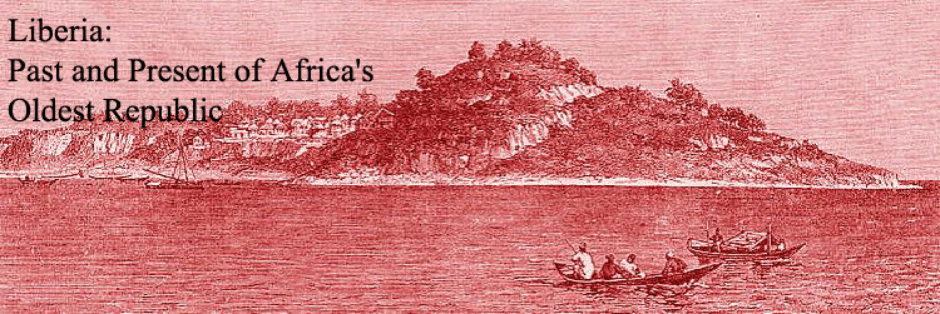I continue browsing through nineteenth century American newspapers with articles of varying length on the colonization of a strip of land on the shore of Western Africa and the subsequent creation of an independent state, Liberia. See my previous postings.
This morning I stumbled upon a short article which, at first sight, without a shadow of a doubt, would fall into the category ‘meaningless trivia’. However, after some reflection I decided to share it with you because of the afterthoughts that came with it.
In the Salem Gazette, a newspaper published in the city of the same name in Massachusetts, United States, dated August 4, 1857, I read that Joseph Blake had died.

Joseph Blake was one of the eighty-eight African-American emigrants who in 1820 sailed on the Elizabeth from New York to West Africa, heading for Sherbro country. The expedition had been organized by the American Colonization Society, with financial and military support of the US government (the Elizabeth was a public vessel of the United States). The colonization attempt was a disaster and within a period of three months, three of the four accompanying whites and 15 of the 88 colonists died. The settlement was abandoned and the surviving African-American settlers (‘pioneers’) sought refuge in the neighboring English colony of Sierra Leone before joining another group of African-American emigrants who successfully installed themselves at Cape Mesurado in 1822.
Joseph Blake had been a successful craftsman in Liberia which even enabled him, financially, to return to the United States when he became seriously ill. It was here that he met his untimely death.
Here follows the text of the article:
Quote: “Death of a Pioneer. One of the emigrants and perhaps the last surviving member of the first company of eighty-eight colored persons who sailed from New York, January 1, 1820, in the ship Elizabeth, to found a settlement on the shores of Western Africa, died in this city yesterday. His name was Joseph Blake. He was, we believe, a native of Philadelphia, having, for several years prior to his embarkation, worked in one of the shipyards of Kensington, as a journeyman – shipcarpenter.
The same calling was followed by him in his adopted country – many of the trading craft of Liberia having been constructed by him or under his direction. Being afflicted latterly with rheumatism, he made a visit to the United States, and arrived in this city in May, where he sought and obtained relief to such an extent, that he proposed returning home next fall, in company with a fellow Liberian. Strange to say, his death was mainly caused by exposure to the sun here, while there he had been exposed to its rays unharmed for over a third of a century.” Unquote.
The story of his life warrants three observations. First, just like in any group of emigrants, the group of eighty-eight African-Americans who left the country where they were born to settle in unknown territory (‘pioneers’) included energetic and enterprising men and women. Joseph Blake is just an example. Secondly, though maybe not very common, it was apparently not an exception for colonists to pay for a passage back to the United States, a country where they originated from but where they were considered (less than) second-class citizens (with no civil rights!). Thirdly, health conditions being precarious in the colony, later the republic of Liberia, if people could afford medical treatment abroad, they would travel to a place with better health facilities than existing in their own country.
Joseph Blake’s decision to seek medical treatment in the United States is basically not different from today’s politicians, businessmen, and other people who have the means to escape from Liberia’s poor health infrastructure and travel to overseas health clinics for medical treatment. That was one of the afterthoughts that came to my mind after reading the short article in the Salem Gazette, ‘Death of a Pioneer’.
To conclude, and to be honest with you, I don’t blame those who travel abroad for medical treatment. Those who are to be blamed are the politicians and managers who fail to create and sustain a well functioning, effective, inclusive and accessible-to-all health system while in a position to do so.

